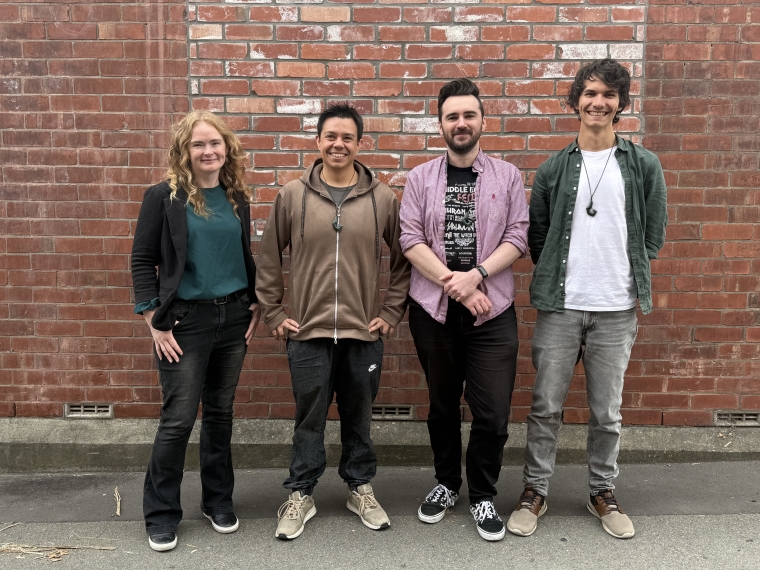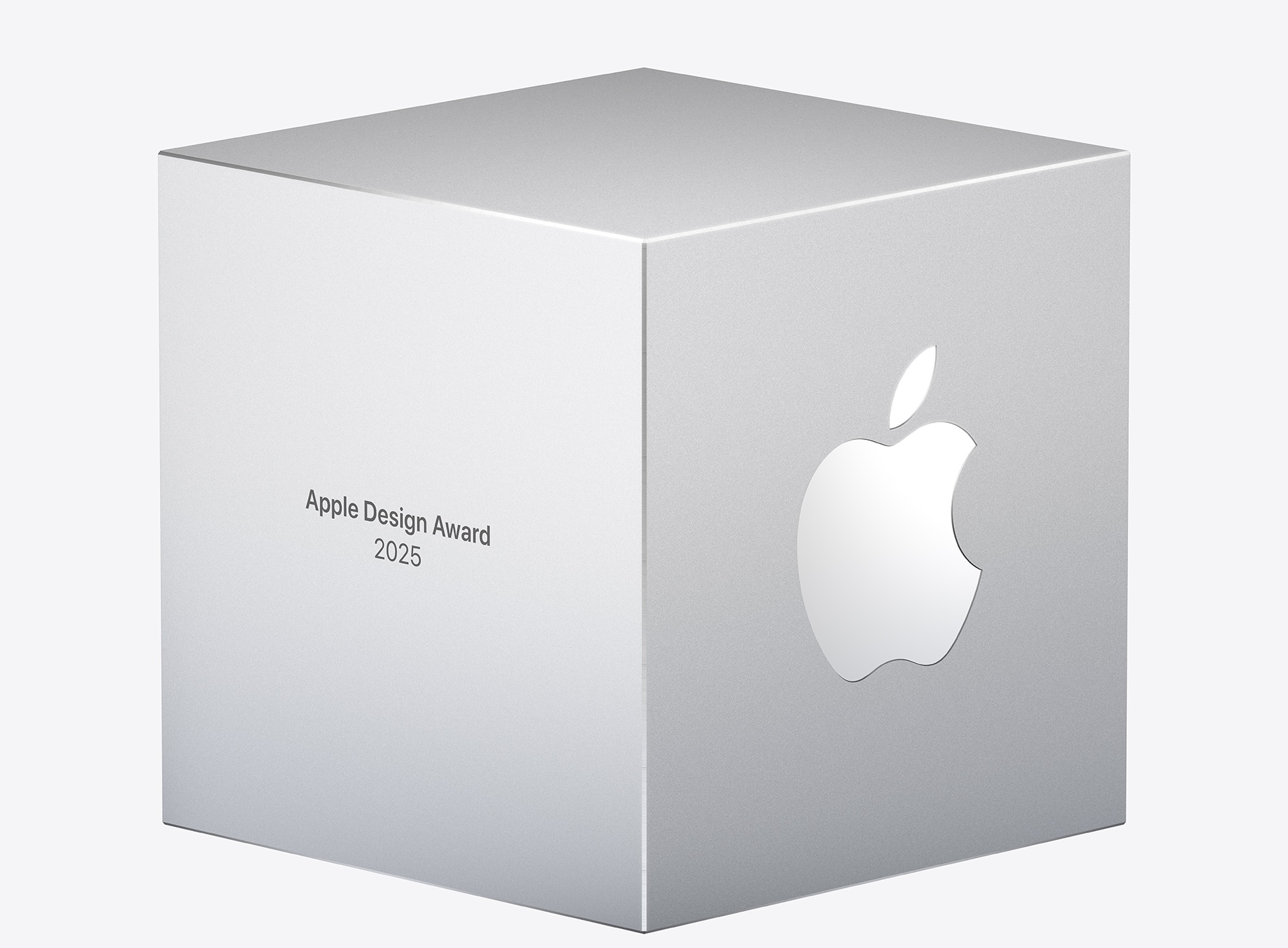
It’s time again for the annual Apple Design Awards, and this year Christchurch’s Black Salt Games took out a gong in the Interaction category, with their game DREDGE which is making waves around the world.
Some context here: the ADAs have been going since 1997, with contestants from all over the world. It is held together with Apple’s annual World Wide Developer Conference (WWDC) event, at which coders congregate to socialise and learn new things, and products and software are announced.
The 2025 ADAs had six categories with two winners in each, selected from 36 finalists.
Apart from bringing home the ADA cube, winners and finalists earn industry credibility, and the recognition is great marketing for the participants as well.

Back to Black Salt Games’ DREDGE; what is it?
“DREDGE blends slow-burn horror with exploration and adventure. Players take the helm of a fishing boat to navigate eerie islands, uncover strange wildlife and piece together a haunting mystery. The game offers seamless interactions and a fun world of hidden treasures across iPhone, iPad and Mac,” the ADA judges wrote.
It’s only the second time New Zealand developers have won an award. Last year, Devin Davis, also from Christchurch, picked up an award in the Interactive ADA category for the Crouton meal planner app.
Interest.co.nz spoke to Black Salt Games co-founder Nadia Thorne about the ADA fame, the company and how it all started.
First, DREDGE didn’t actually start out on Apple, Thorne explained.
“We simultaneously released DREDGE on PC (Steam, GOG), Nintendo Switch, Playstation 4&5 and Xbox One & Series in March 2023 with a physical console release as well, since then we've also launched on Epic Game Store and most recently AppStore and Google Play in February 2025, almost two years exactly since our first launch,” Thorne said.
It’s often hard to create different versions of software for different platforms, but not so with DREDGE, which Thorne said was surprisingly easy to do.
“Probably one of the smartest decisions we made was building DREDGE to be optimised for Nintendo Switch from the start of development, and while iPhones and iPads are not dedicated gaming devices and are doing a lot of other things too, the specs of many of the devices are comparable or better than what we built DREDGE for,” Thorne said.
DREDGE has done pretty well in terms of worldwide downloads.
“In the three months since launching the Appstore and Google Play versions in February 2025 we've had over one million downloads of our DREDGE mobile version, this adds to the more than two million copies we've sold across PC and Consoles to date,” Thorne said.
How it all began, as the pandemic struck New Zealand
Black Salt Games was started up in 2021, and Thorne said the team is “definitely a result of the crazy pandemic time.” Apart from Thorne as the producer, Black Salt Games comprise Joel Mason as programmer, Alex Ritchie as artist, and Michael Bastiaens as the 3D artist.
The Black Salt Games team all worked at Christchurch games studio CerebralFix for years, a company that Thorne said is “world-class at delivering game experiences for big entertainment brands.”
Being part of those projects stood the team in good stead as they struck out on their own.
“It meant we already have a lot of the ‘how to game dev’ figured out,” Thorne said.
“When the pandemic hit, it became a natural reflection point of whether it was time to give our own games a crack, so we spun out and began to figure out what the ‘what to game dev’ part,” Thorne added.
For DREDGE the process started by prototyping a few different ideas.
“DREDGE came from Joel whose pitch began with just two words: “Lovecraftian fishing,” Thorne said.
“You could instantly imagine this unnerving, mysterious world and the prototype captured that right away. The gameplay itself felt like two distinct halves: a relaxing, almost meditative daytime fishing loop, and then a night-time experience full of paranoia and claustrophobia,” she added.
“One of the best parts of development was watching players' different styles during playtesting; some were ultra-cautious and always headed back to town before sundown, while others never slept, fully embracing the consequences,” Thorne said.
Thorne’s father is one reason as to why she’s now part of the Black Salt Games team.
“My dad, not sure if he was ahead of his time in the 80s, understanding how important computer literacy could be for his children, or just enjoyed that it could keep a three-year-old quiet and in one place for a good amount of time; but I remember learning my ABCs on MS-DOS and many many hours of math games,” Thorne said.
“One of my first jobs back in 2006 was at a Christchurch gaming cafe called Battlelink that used to be across from the bus exchange on Lichfield street, that was owned by Ben Dellaca who one day decided that because we enjoyed playing games so much, it would also be fun to make our own games,’ she added.
Dellaca is the group director of CerebralFix.
As for making your own games, Thorne said that it was easier said than done, but Dellaca turned out to be right (it was fun).
AI won't kill computer games
Nothing stays the same in IT for long, as new things come along and sweep away the old stuff. For games, will artificial intelligence make them obsolete?
Thorne is adamant that AI won’t make games obsolete.
“Games, definitely not, it's a bigger industry than films and music combined these days and with more access to technology and devices, more recreational time in our lives - though it hardly feels that way does it?” Thorne said.
New platforms arrive every decade or so and Thorne thinks there will be even more growth in the games sector, rather than decline.
“When I started in the game industry mobile games didn't exist, now it's a $100 billion-plus a year industry. Crazy!” Thorne said.
However, AI will definitely impact game development though as it will, and has, left its mark on all other creative industries.
“I can see the future where game developers are incorporating AI into their development process, but can't see a future that doesn't require human direction and curation when crafting these stories and experiences,” Thorne said.
“AI will change things, but the game industry is constantly evolving - the games you can make today with a small team of developers would have taken multiples more a couple of decades ago.”
“That's one of the things that makes game development so exciting, the bar to entry to making games is getting lower all the time with access to new and free toolsets and that just means players are spoiled for choice for great games,” she concluded.

We welcome your comments below. If you are not already registered, please register to comment
Remember we welcome robust, respectful and insightful debate. We don't welcome abusive or defamatory comments and will de-register those repeatedly making such comments. Our current comment policy is here.